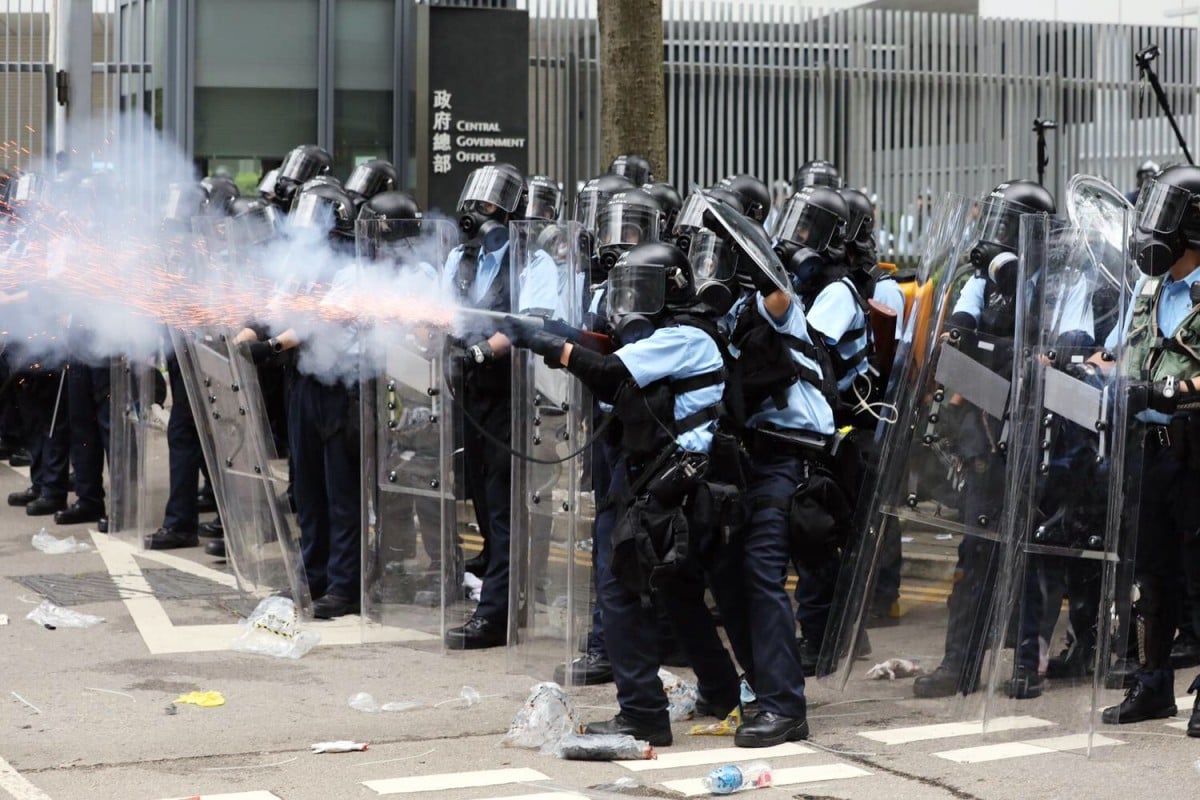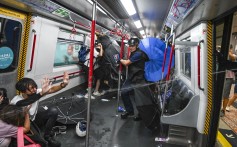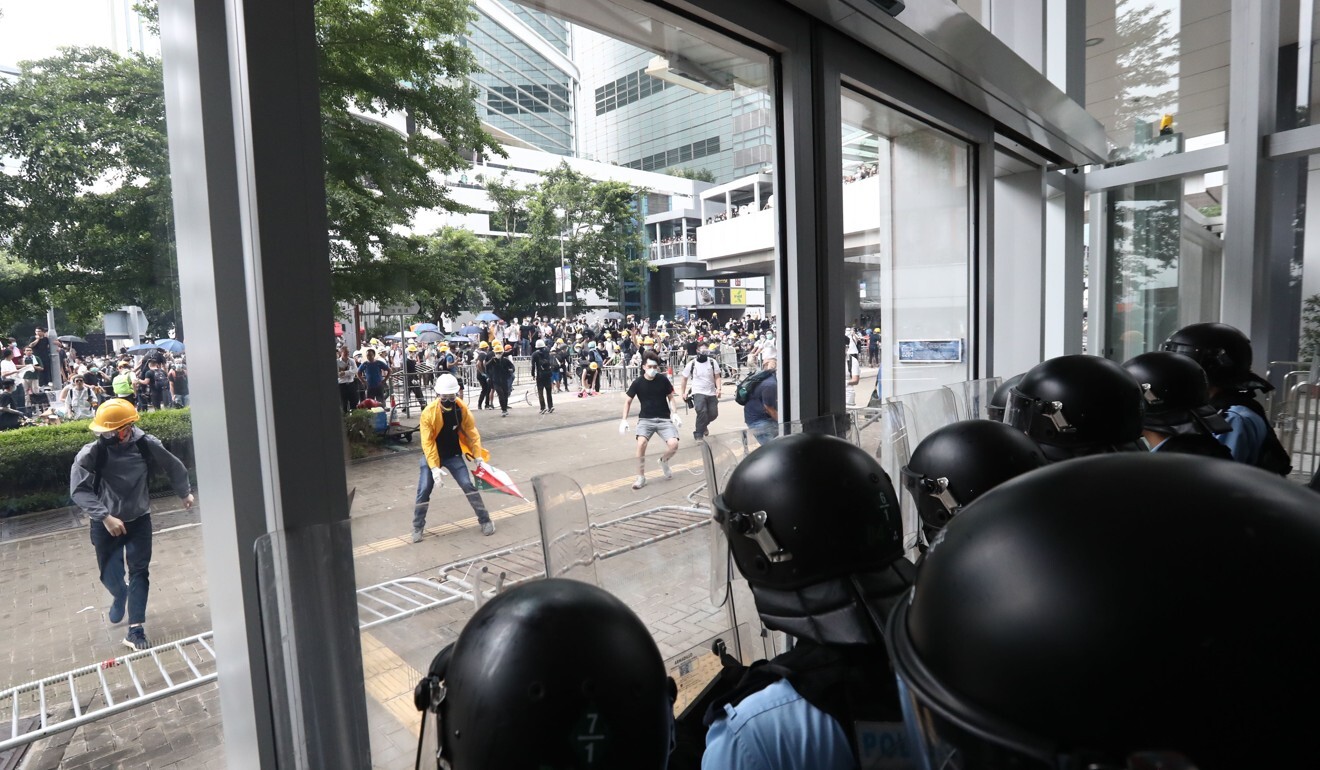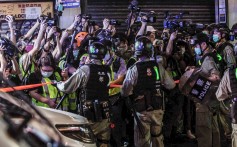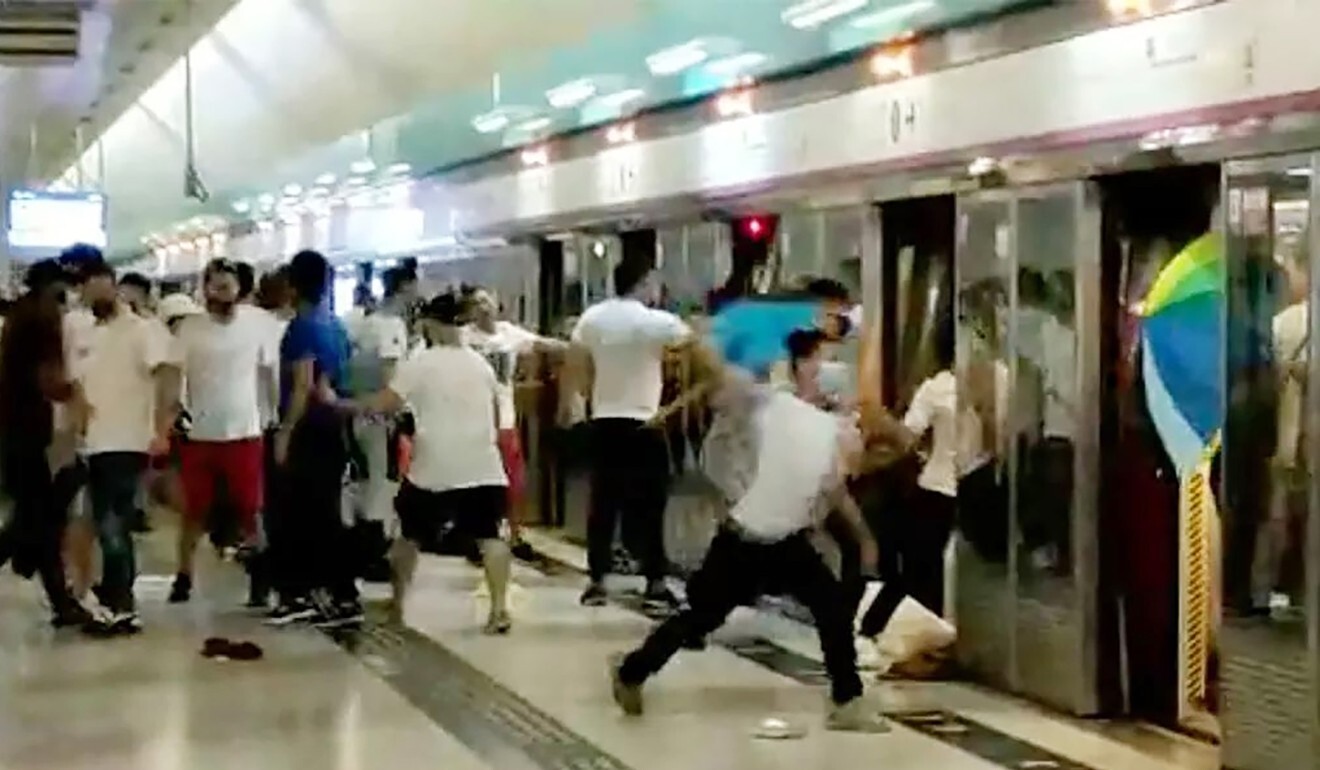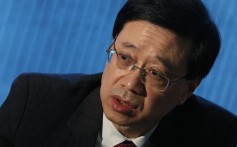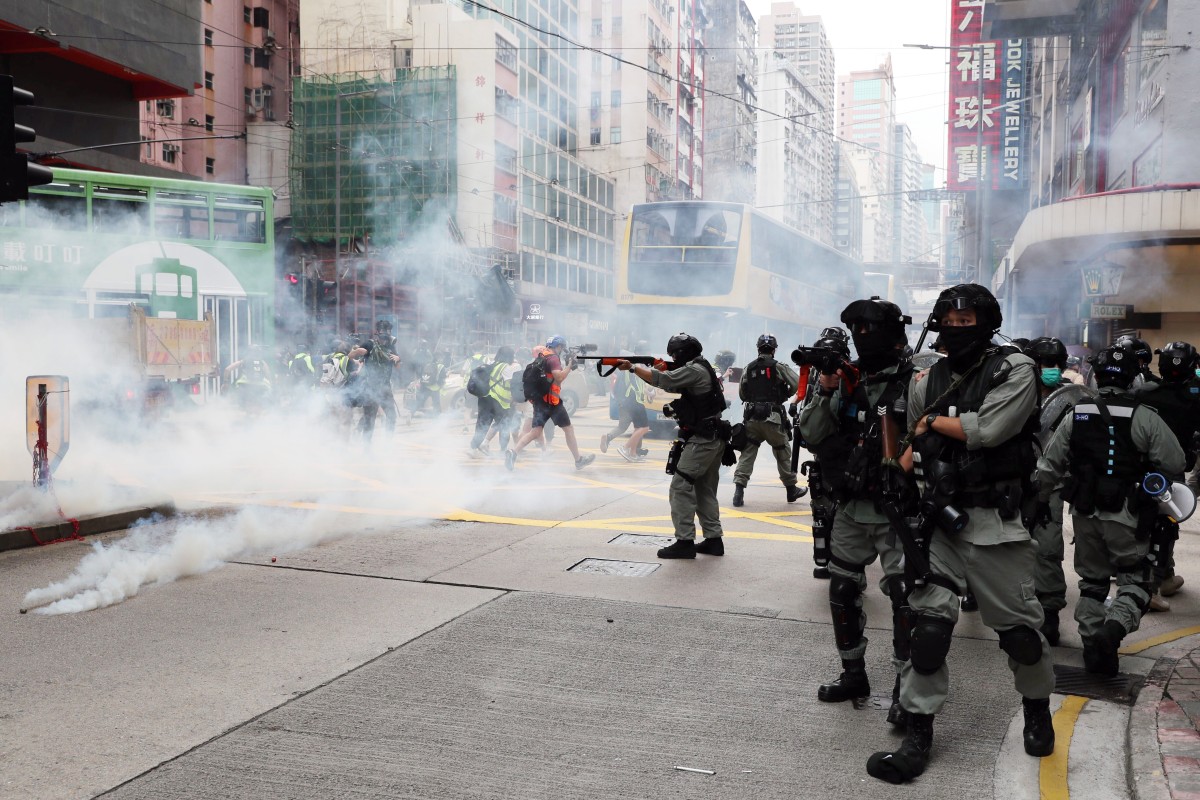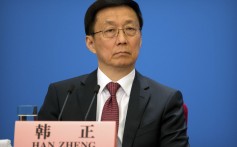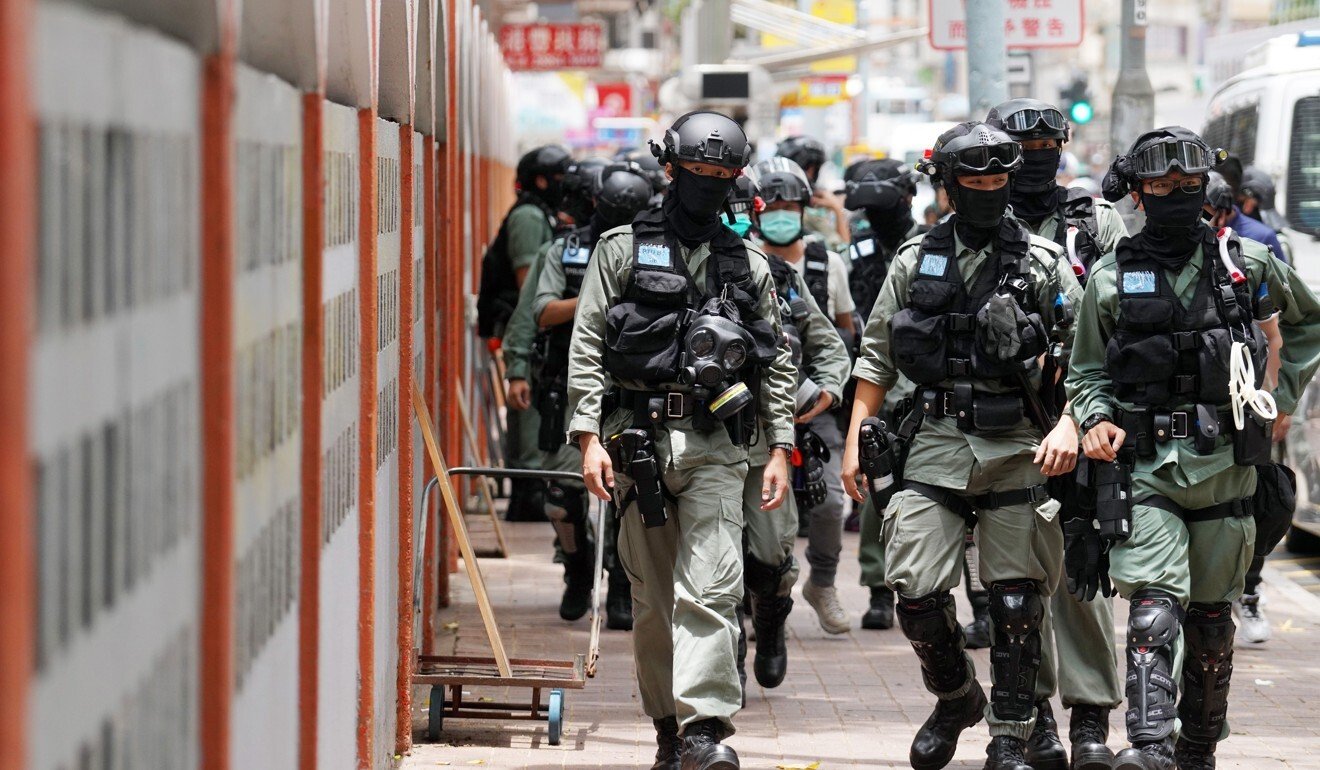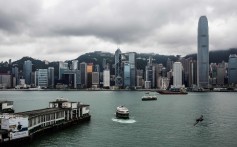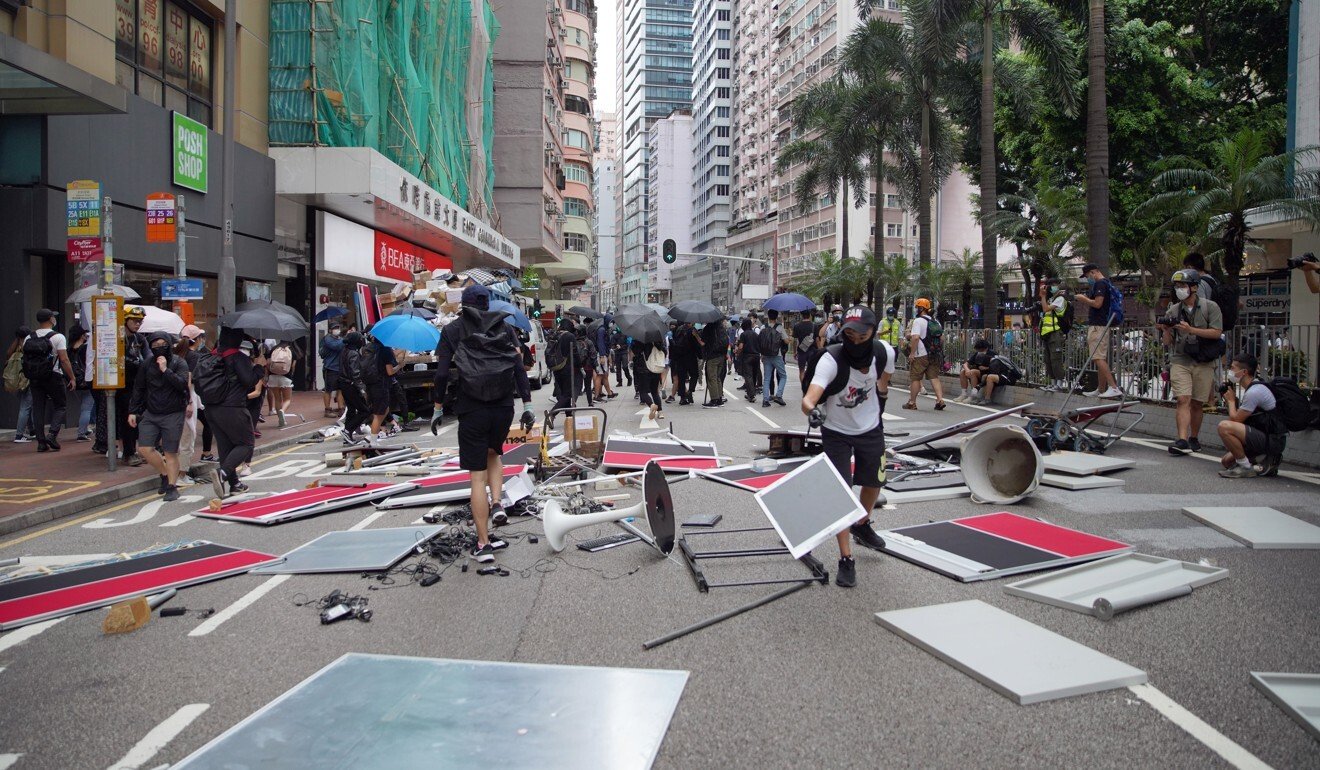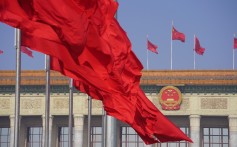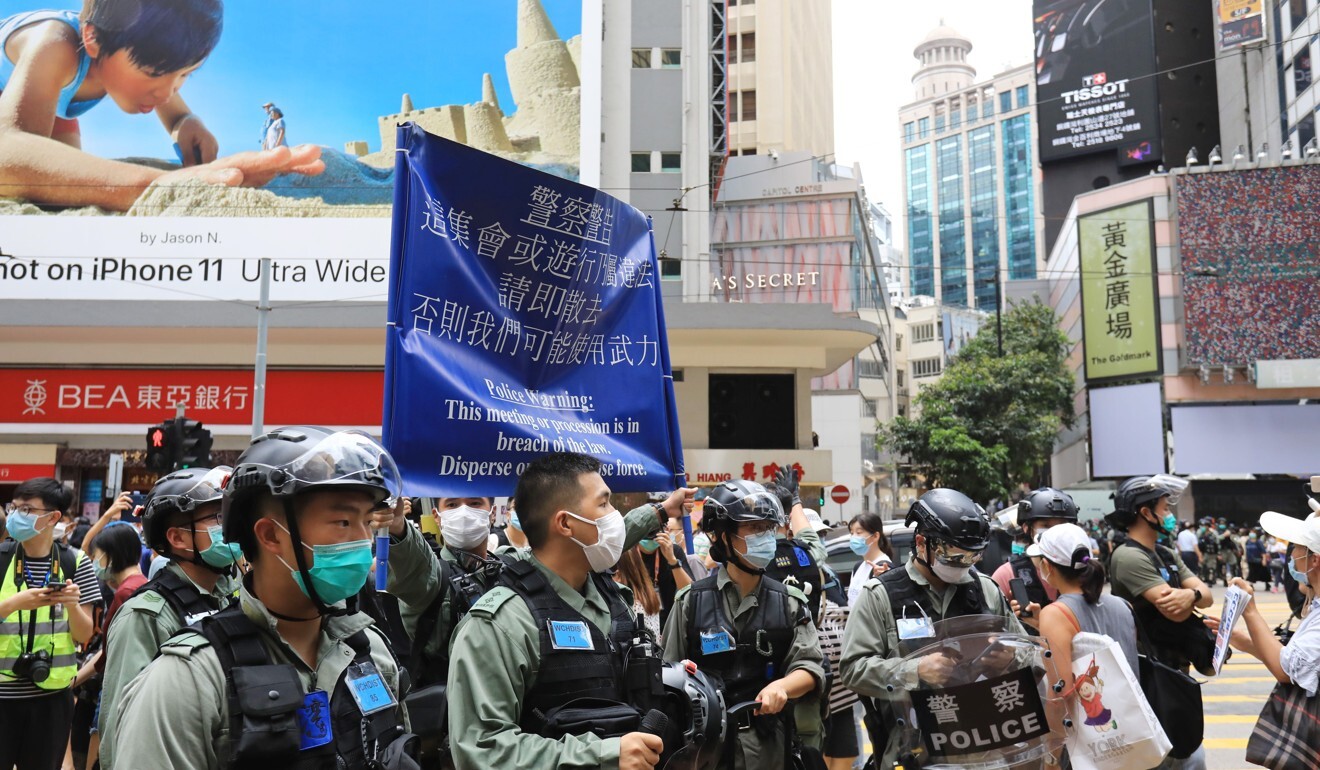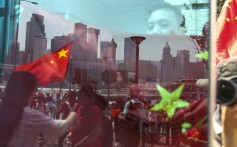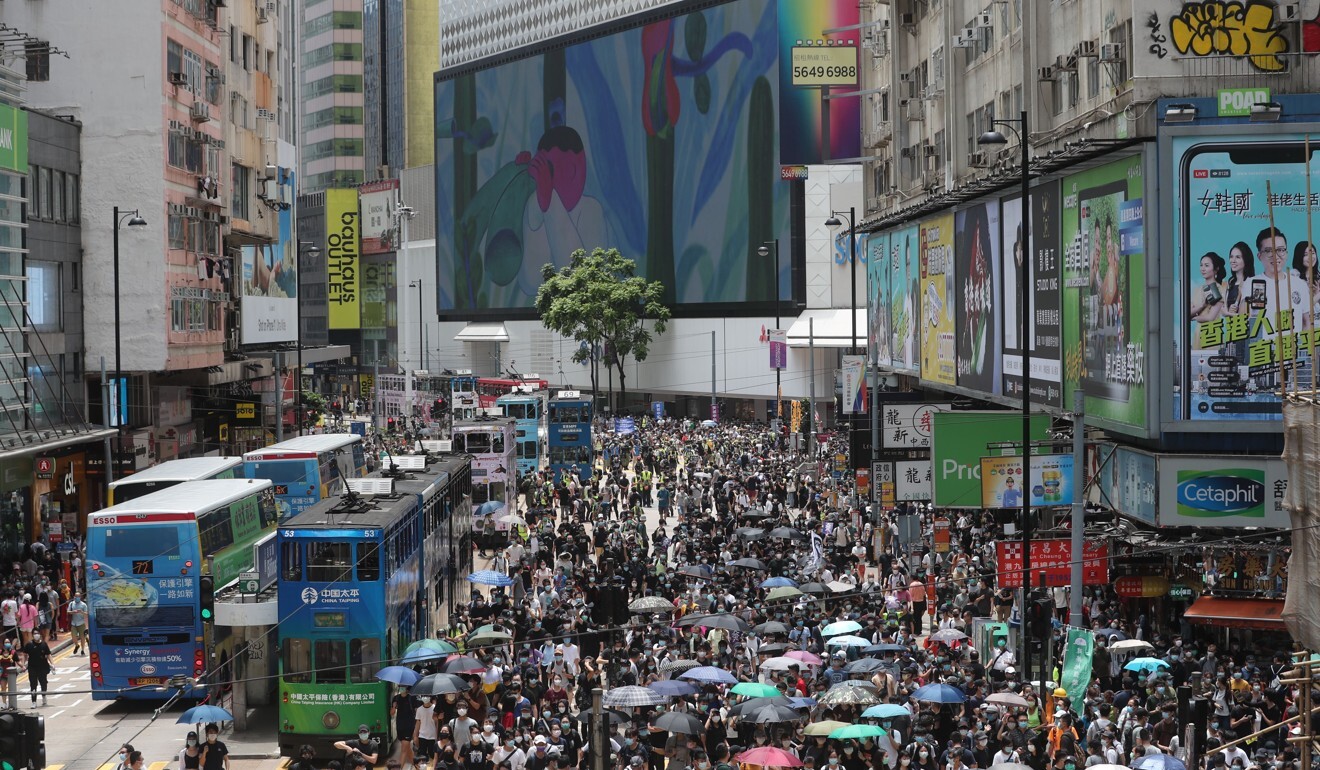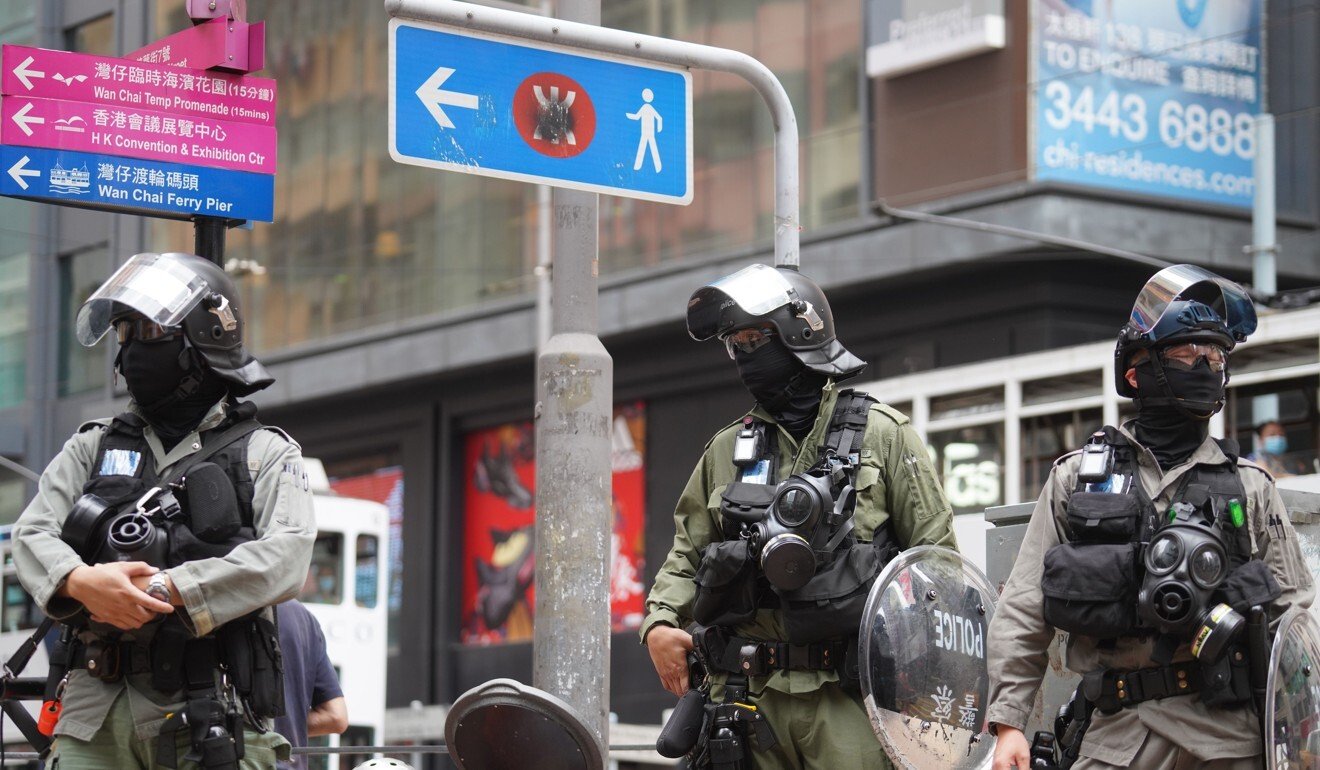HONG KONG 23 SKIDOO
The possibility of new security bodies in the city, or ‘one-size-fits-all’ charges being used against activists are among issues prompting concern
Despite the central government’s move, local leadership is still expected to craft their own national security law under the Basic Law’s Article 23
Jeffie Lam and Kimmy Chung
Published: 11:09pm, 22 May, 2020

Chinese security officials stand guard outside the Great Hall of the People after the opening session of China's National People's Congress in Beijing on Friday. Photo: AP
In a political bombshell that carries potentially drastic implications for Hong Kong, Beijing has decided to bypass the Legislative Council and craft a new national security law tailor-made for the city. The new law was introduced after almost
a year of increasingly violent anti-government protests, and has sparked concerns over the fate of the “one country, two systems” blueprint that has guided Hong Kong since the handover. Here are the answers to key questions.
1. What is the draft legislation about?
According to
the resolution put forward at the National People’s Congress (NPC) on Friday, the new law is intended to prevent, stop and punish acts in Hong Kong that threaten national security, and encompasses secessionist and subversive activity as well as foreign interference and terrorism.
The NPC also highlighted the responsibility of Hong Kong’s leader to protect national security by launching promotional and education programmes on the matter, prohibiting acts that threaten national security, and submitting reports to the central government on a regular basis.
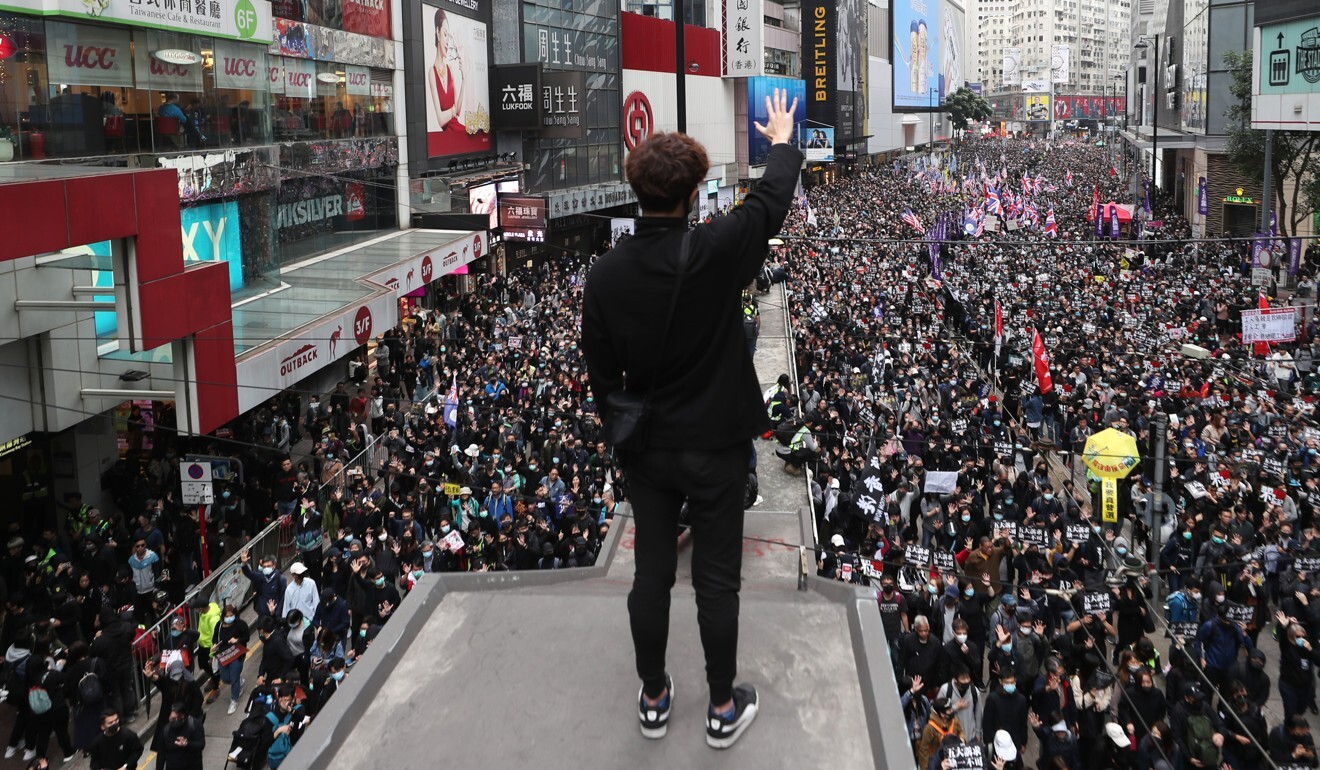
A year of dramatic anti-government protests preceded Beijing’s decision to push forward its own national security law for Hong Kong. Photo: Sam Tsang
2. Who is going to enforce the law?
This remains unclear, but the resolution has specified that relevant Beijing authorities overseeing national security can set up organisations in Hong Kong if necessary, implying mainland agents would have enforcement powers within the city.
Ip Kwok-him, a local NPC deputy, defended the potential necessity of mainland agents. “When foreign interference is involved, it is not something Hong Kong departments can tackle on their own,” he said.
Pro-establishment heavyweights – including former Basic Law Committee vice-chairwoman Elsie Leung Oi-sie – have said that even if mainland agencies were established in the city, their staff would still be bound by local laws.
3. How will the legislation be promulgated and when is it likely to happen?
Under Article 18 of the Basic Law, national laws can only be applied in Hong Kong if they are listed in Annex III of the mini-constitution and related to defence, foreign affairs or “other matters outside the limits” of the city’s autonomy. The national laws would then either be promulgated – taking effect automatically – or adopted through local legislation. Beijing has opted for the former, effectively bypassing the city’s legislature.
CORONAVIRUS UPDATE
Get updates direct to your inbox
SUBSCRIBE
By registering, you agree to our T&C and Privacy Policy
The NPC is expected to vote on the resolution at the end of the annual session, likely on May 28. The resolution will then be forwarded to the NPC Standing Committee, which will craft the bill’s details. The draft law will then be presented at the start of the bimonthly meeting of the Standing Committee as early as June. Tam Yiu-chung, Hong Kong’s sole representative on the NPC standing committee, said it usually took one or two of the weeklong meetings for the committee to pass a law, meaning it could be passed by either June or August.
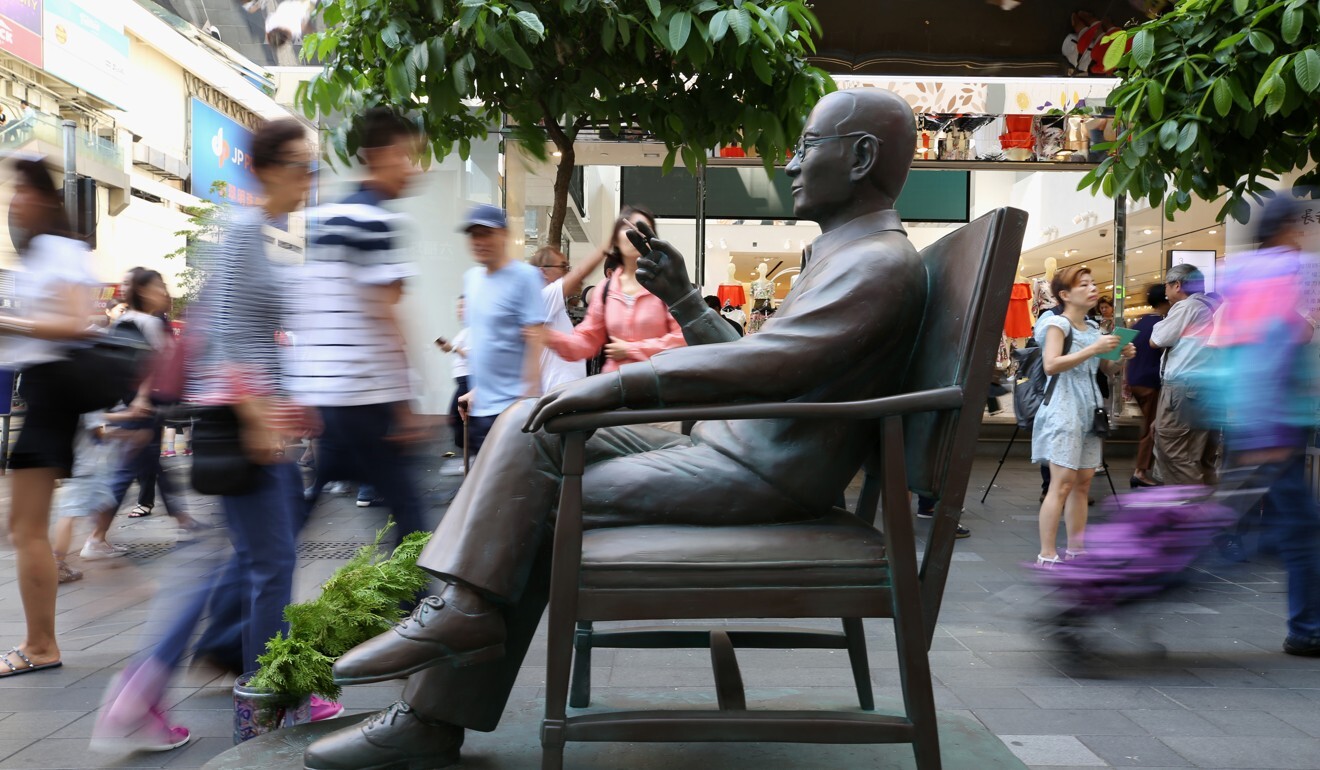
Critics point to the case of Nobel Peace Prize laureate Liu Xiaobo, sentenced to 11 years in prison for inciting subversion, as an example of how national security laws might be used to clamp down on dissidents. Photo: Robert Ng
4. What are critics’ main concerns?
By enacting the national security law through promulgation, opposition politicians have said there was no room left for discussion or negotiation in Hong Kong on how the bill should be drafted. They have warned the law would be akin to certifying the death of one country, two systems, as it would allow Beijing to install a new and unregulated legal system in Hong Kong.
Veteran democrat Lee Cheuk-yan has expressed fear that crimes such as subversion could be used arbitrarily as a “one-size-fits-all” charge against activists. He pointed to how Beijing has used existing national security laws to clamp down on mainland dissidents, such as the late Nobel Peace Prize laureate Liu Xiaobo, who was sentenced to 11 years in prison in 2009 for inciting subversion.
Several international business chambers – including the American Chamber of Commerce in the city – have warned the legislation would put the city’s position as a global financial hub in jeopardy.
Amnesty International also warned: “This attempt to bulldoze through repressive security regulations poses a quasi-existential threat to the rule of law in Hong Kong and is an ominous moment for human rights in the city.”
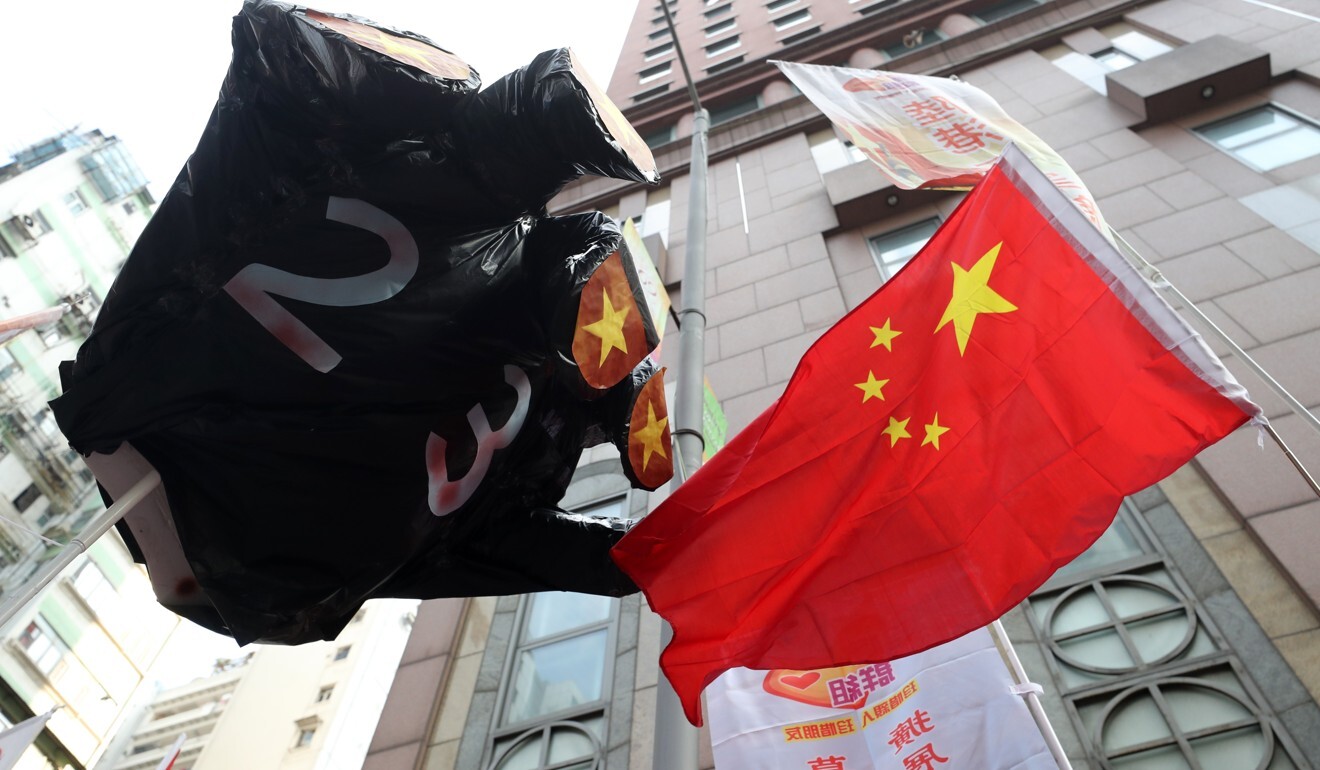
A black hand meant to symbolise the Basic Law’s Article 23 is held up by a member of a pro-democratic party, while a Chinese flag is held up by a member of a pro-Beijing group during a 2018 National Day protest in Hong KOng. Photo: Winson Wong
5. Why hasn’t Hong Kong enacted its own national security law since the handover?
Article 23 of the Basic Law, the city’s mini-constitution, requires the Hong Kong government to enact national security legislation on its own.
But an attempt to legislate Article 23 in 2003 was abandoned after an estimated half a million people took to the streets against it, fearing it would curb their rights and freedoms. The Hong Kong government has since steered clear of reintroducing the legislation, with incumbent leader Carrie Lam Cheng Yuet-ngor reiterating “a favourable environment” was needed to tackle the controversial issue.
6. Why is Beijing pressing ahead with a national security law knowing it would risk a backlash?
The new law comes almost a year after unprecedented social unrest – triggered by the now-withdrawn extradition bill and accompanied by increasingly violent anti-government protests – erupted in Hong Kong last June. Politicians and demonstrators have also lobbied for international support via overseas visits and online campaigns – drawing the ire of Beijing, which views it as a form of foreign interference.
In November, the United States signed into law the Human Rights and Democracy Act, which would allow Washington to suspend Hong Kong’s special trading status based on an annual certification by the US State Department, which determines whether the city retains a sufficient degree of autonomy under the one country, two systems framework. The US – amid an increasingly tense relationship with Beijing – has until the end of this month to make that decision for the first time.
In Hong Kong, the city’s pro-democracy bloc, which scored a landslide victory in the district council elections in November, is mounting a “35-plus” campaign to seize control of the 70-member legislature in the September polls and block all bills put forth by the government.
It is against that backdrop that Beijing decided to fire the pre-emptive shot, declaring it had to step in given how difficult it would be for the local government to enact the long-overdue law on its own amid the “worsening” situation.
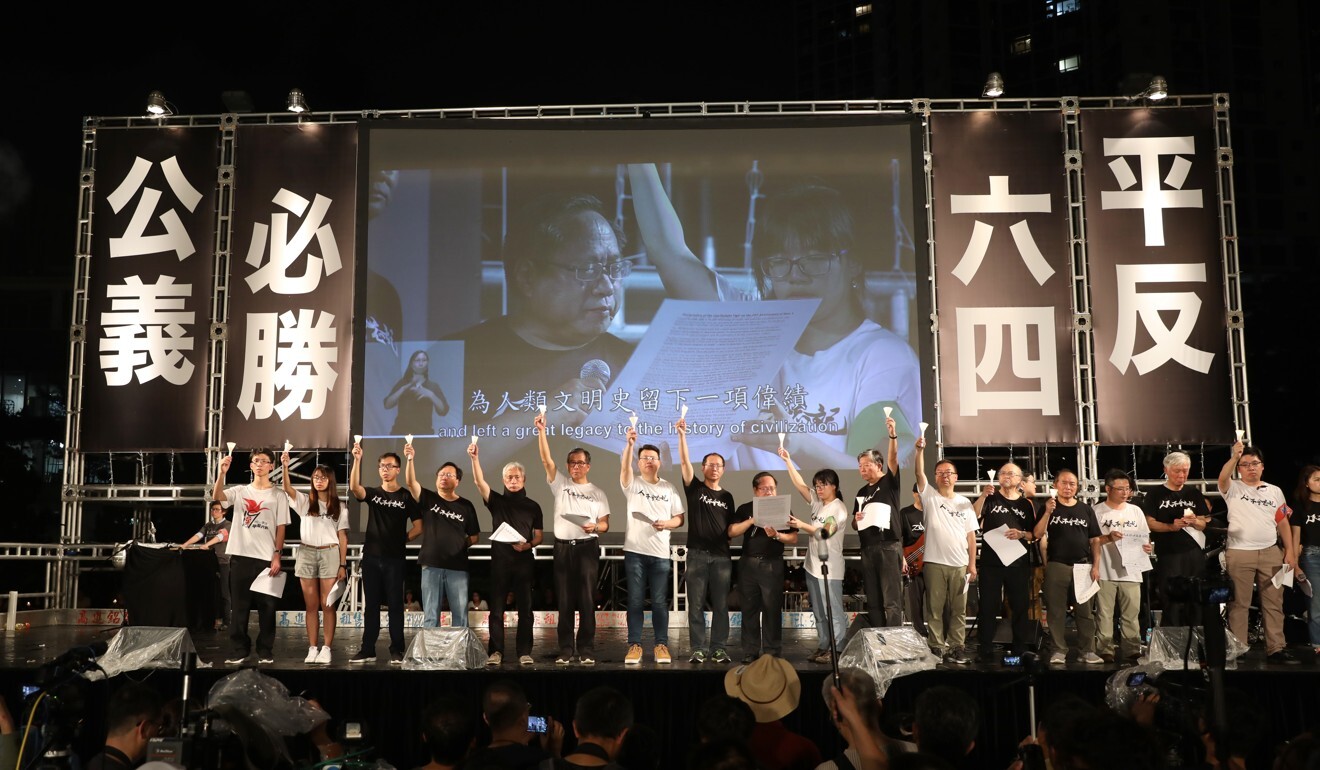
An annual vigil marking the anniversary of the 1989 Tiananmen Square crackdown takes place every year in Hong Kong. Its organisers’ calls for an end to one-party rule have some fearing they will fall afoul of the new national security law. Photo: Sam Tsang
7. Does Hong Kong still need to craft its own national security legislation based on Article 23?
The answer is yes, according to the NPC resolution. It emphasised that the local administration still has a constitutional responsibility to enact Article 23 as soon as possible, and that the legislation cannot contradict the version being drafted by Beijing.
Article 23 states that the national security law must prohibit acts of “treason, secession, sedition, subversion against the central people’s government, or theft of state secrets” as well as prevent “political organisations or bodies of the region from establishing ties with foreign political organisations or bodies”.
The Beijing-decreed law bans acts of secession, subversion, foreign interference and lastly, terrorism – an offence not covered in Article 23 – implying that acts of treason, sedition and theft of state secrets remain outstanding items that would still needed to be addressed.
Professor Simon Young Ngai-man, associate dean (research) of the University of Hong Kong’s law school, described the promulgation of the national security law as alarming, saying it undermined the clear legislative intent that “the requirements of Article 23 were to be enacted by Hong Kong ‘on its own’ and not to be imposed top-down by the central government”.
That could be one explanation as to why Beijing has repeatedly said its security law was different from Article 23.
“A total substitution [of Article 23] would mean an amendment of the Basic Law as well, which involves complicated procedures,” a NPC deputy who spoke on condition of anonymity said.
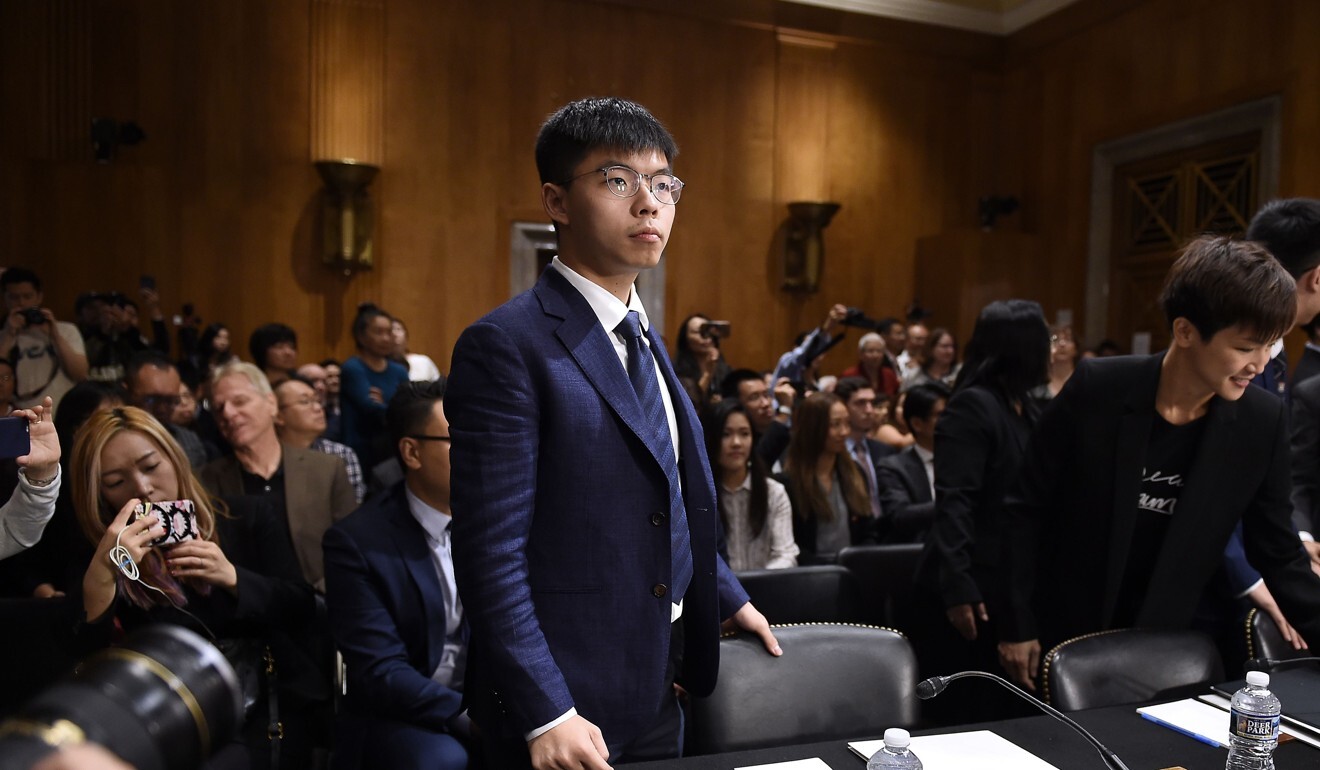
Fellow activists fear former ‘Umbrella Movement’ leader Joshua Wong, secretary-general of Hong Kong's Demosisto party, will be targeted under new national security legislation being introduced by Beijing. Photo: AFP
8. Who might be affected by the new law?
Hong Kong has long been the only place on Chinese soil to organise a large-scale annual vigil commemorating the Tiananmen Square crackdown in 1989. The vigil organiser – the Hong Kong Alliance in Support of Patriotic Democratic Movements in China – has over the years called for the end of one-party rule.
The city’s activists are pessimistic the alliance would be allowed to exist under the proposed national security law.
“Some slogans, such as calls to end one-party rule in China, will be stepping on red lines,” lawmaker Tanya Chan, convenor of the bloc, said. “There may be risks in supporting human rights activists in China who are jailed for subversion.”
She also warned the proposed law could also be used to bar opposition activists from running in local elections. “Will lawmakers and candidates who have chanted slogans be disqualified?” Chan asked.
The law would presumably also go against those who push a localist or pro-independence line, superseding the need for the city to look to common law.
Some pundits have suggested the law could affect young activist Joshua Wong Chi-fung and his Demosisto party. In recent years, both have led Hong Kong civil society’s international lobbying efforts.
HKU legal academic Young also warned that the national security law would curtail the sponsorship of activities by foreign NGOs and governments.
Additional reporting by Sum Lok-kei and Chris Lau
Help us understand what you are interested in so that we can improve SCMP and provide a better experience for you. We would like to invite you to take this
five-minute survey on how you engage with SCMP and the news.
COMMENTS

Jeffie Lam
Jeffie writes predominantly about Hong Kong politics, but is also interested in social welfare issues, such as the city's ageing population and elderly care. She joined the Post in 2013 after beginning her career as a political reporter in 2009. In 2016, she won the English features merit prize in the 20th Human Rights Press Awards.

Kimmy Chung
Kimmy Chung joined the Post in 2017 and reports for the Hong Kong desk on local politics and Hong Kong-mainland issues. Prior to joining the Post, she covered Hong Kong politics and social policies for more than six years for different media outlets.
SEE
https://plawiuk.blogspot.com/2020/05/thousands-protest-in-hong-kong-over.html
https://plawiuk.blogspot.com/2020/05/tear-gas-fired-arrests-made-as.html
https://plawiuk.blogspot.com/2020/05/photo-essay-hong-kong-free-press-hong.html

Fellow activists fear former ‘Umbrella Movement’ leader Joshua Wong, secretary-general of Hong Kong's Demosisto party, will be targeted under new national security legislation being introduced by Beijing. Photo: AFP
8. Who might be affected by the new law?
Hong Kong has long been the only place on Chinese soil to organise a large-scale annual vigil commemorating the Tiananmen Square crackdown in 1989. The vigil organiser – the Hong Kong Alliance in Support of Patriotic Democratic Movements in China – has over the years called for the end of one-party rule.
The city’s activists are pessimistic the alliance would be allowed to exist under the proposed national security law.
“Some slogans, such as calls to end one-party rule in China, will be stepping on red lines,” lawmaker Tanya Chan, convenor of the bloc, said. “There may be risks in supporting human rights activists in China who are jailed for subversion.”
She also warned the proposed law could also be used to bar opposition activists from running in local elections. “Will lawmakers and candidates who have chanted slogans be disqualified?” Chan asked.
The law would presumably also go against those who push a localist or pro-independence line, superseding the need for the city to look to common law.
Some pundits have suggested the law could affect young activist Joshua Wong Chi-fung and his Demosisto party. In recent years, both have led Hong Kong civil society’s international lobbying efforts.
HKU legal academic Young also warned that the national security law would curtail the sponsorship of activities by foreign NGOs and governments.
Additional reporting by Sum Lok-kei and Chris Lau
Help us understand what you are interested in so that we can improve SCMP and provide a better experience for you. We would like to invite you to take this
five-minute survey on how you engage with SCMP and the news.
COMMENTS

Jeffie Lam
Jeffie writes predominantly about Hong Kong politics, but is also interested in social welfare issues, such as the city's ageing population and elderly care. She joined the Post in 2013 after beginning her career as a political reporter in 2009. In 2016, she won the English features merit prize in the 20th Human Rights Press Awards.

Kimmy Chung
Kimmy Chung joined the Post in 2017 and reports for the Hong Kong desk on local politics and Hong Kong-mainland issues. Prior to joining the Post, she covered Hong Kong politics and social policies for more than six years for different media outlets.
SEE
https://plawiuk.blogspot.com/2020/05/thousands-protest-in-hong-kong-over.html
https://plawiuk.blogspot.com/2020/05/tear-gas-fired-arrests-made-as.html
https://plawiuk.blogspot.com/2020/05/photo-essay-hong-kong-free-press-hong.html







